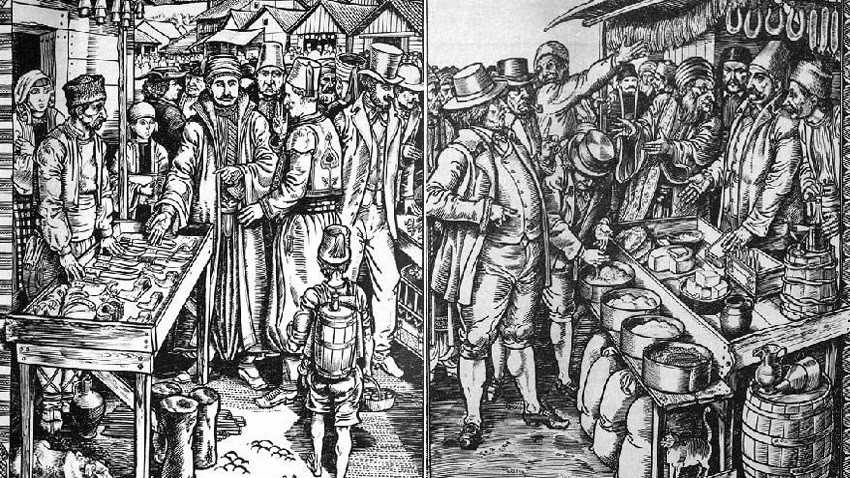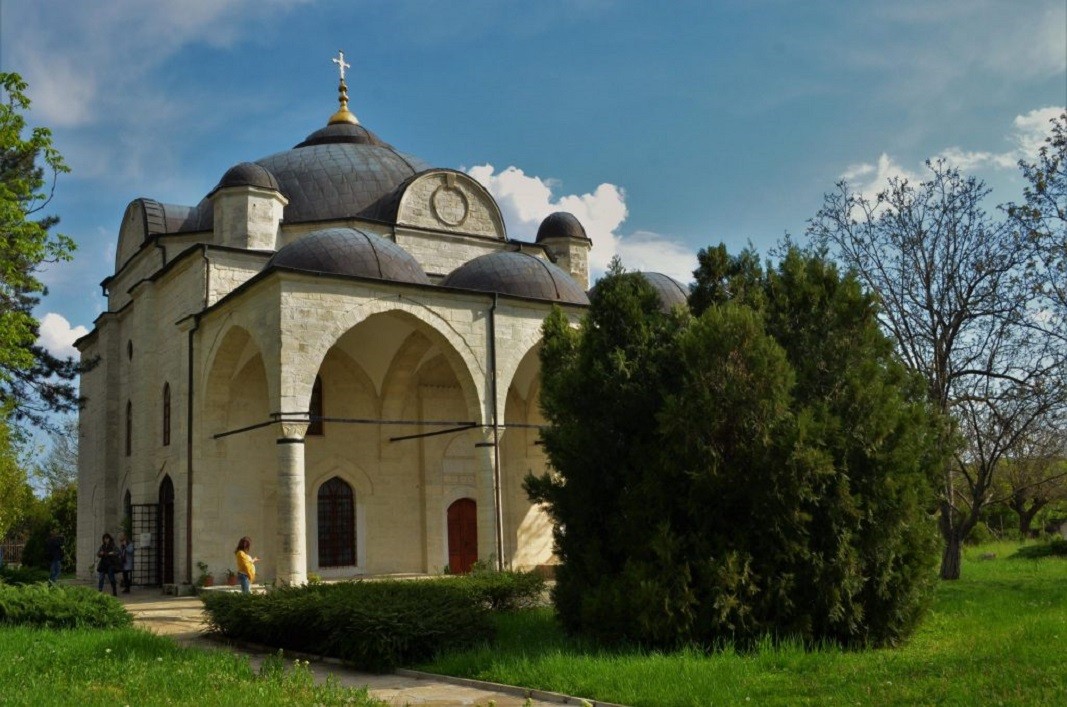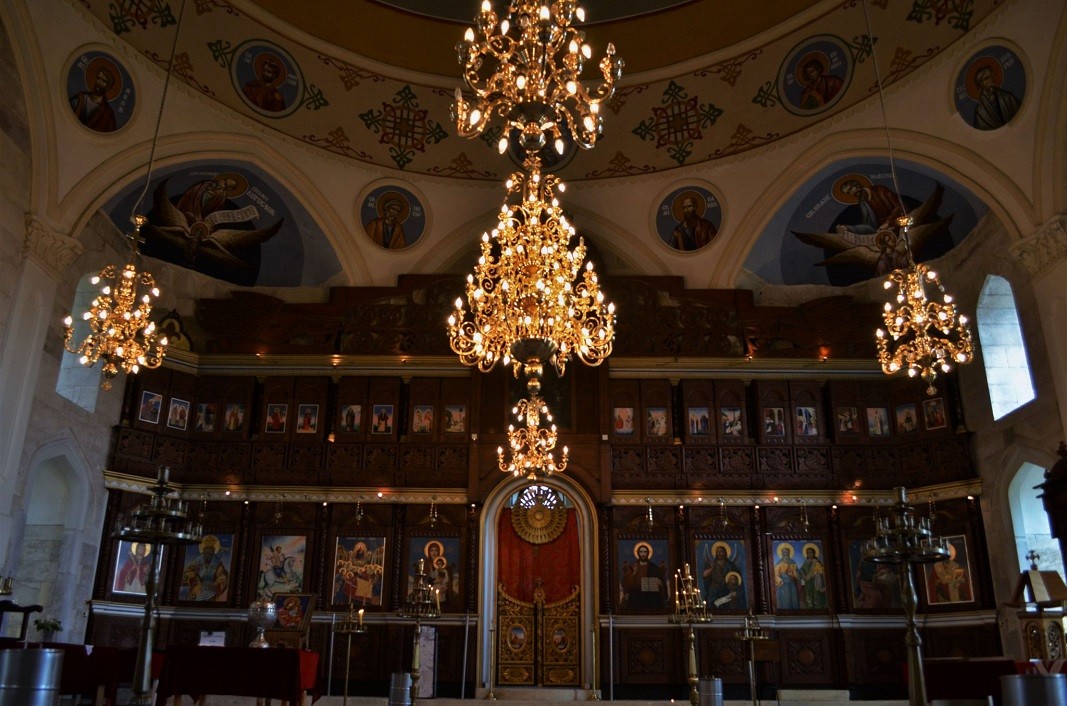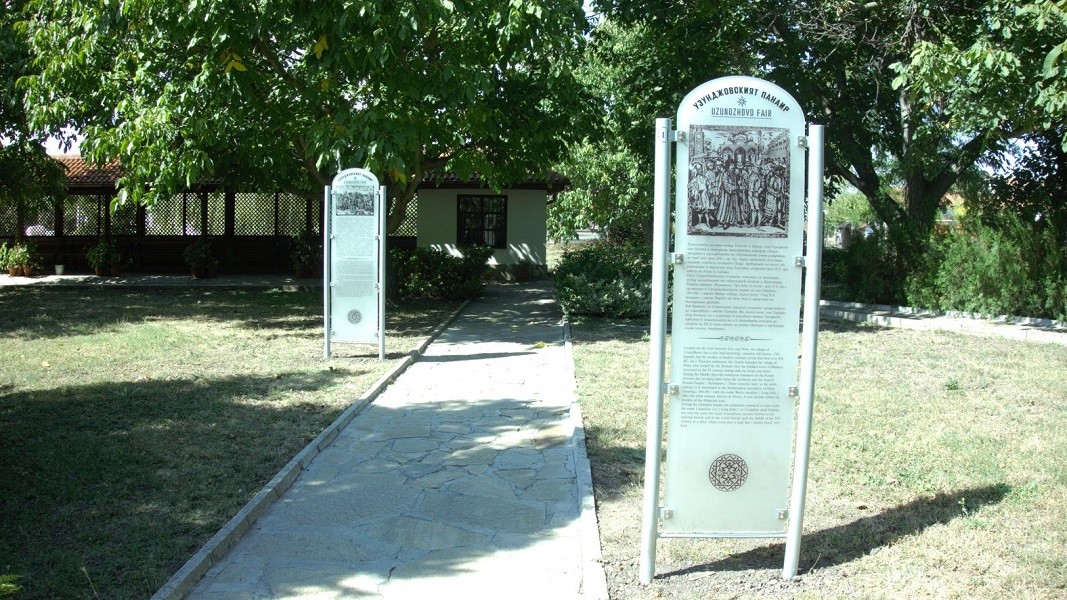Many churches in Bulgaria have been converted to mosques in the times when the country was under Ottoman rule. Uzundzhovo village, Haskovo province, is quite a different case: its mosque was transformed into a church. Nowadays the Church of the Assumption is the largest village Christian temple in Bulgaria. Long time ago its churchyard used to host the legendary Uzundzhovo Fair, whose fame spread as far as the Middle East and North Africa.
Every autumn for more than two centuries the village was engulfed into an extravaganza of colors and sounds, attracting visitors from places far and near. Merchants of all nationalities loudly touted their goods, brought from thousands of miles away. Shoppers were raising voices, bargaining in a hustle and bustle, for the best price.

Major deals were struck here between corporations and large farmers from all over Europe. But people also came to Uzundzhovo Fair for the entertainment. Circus performers, exotic animals and showmen drew excited spectators from all over the Empire. The fair was held near the mosque-turned-church or today's Church of the Assumption.
The first fare in Uzundzhovo was supposedly held in 1593. It was established by the Ottoman Grand Vizier Sinan Pasha,Mitra Todorova, chief specialist at the Tourist Information Center - Haskovo tells the BNR.
Sinan was passing through the village, when he saw a big flat meadow near the ruins of an old Christian temple. He decided that this was the perfect place to build a large inn, where traders and travelers, moving along the so-called Constantinople road, could spend the night, says Mitra Todorova.
"He then had a large caravanserai built on the site, as a lodging placefor over 2,000 people, with 80 fireplaces, a stable for over 1,000 horses, and a clock tower. On the ruins of the old church, Sinan Pasha built a large mosque. He saw that the location was perfect for a marketplace for goods from all over Europe and the East. Uzundzhovo Fair flourished. In its best years, towards the end of the 18th and the beginning of the 19th century, it hosted 150,000 people every autumn," says Mitra Todorova.
Human eye could not see far enough to capture all the goods at the fair. Bulgarian rose growers marketed their harvest of rose oil. Wool-braiders, tanners, knife makers, and tailors offered their products wholesale to clients from faraway lands. The Persians sold colorful scarves and carpets, the English offered spices and dyes, the Italians brought glassware and silk fabrics, the Russians had expensive furs and books. In addition, each town or district had its own bazaar within the fair, where, along with livestock... slaves were sold. And more:

"State deals were made at the fair for exports of wheat, furs and everything that was in demand, says Mitra Todorova. - It was also a kind of labour exchange, because for example the schools there "bargained" for their teachers for the school year. – One could buy anything at the Uzundzhovo fair, including weapons. In 1871-1872, revolutionary Vasil Levski himself went there secretly to buy weapons for the upcoming uprising."
What's left of the grandeur of what was once a commercial miracle in this part of Europe? - Almost nothing, apart from the mosque later converted into a church. Sinan had symbols of various religions incorporated into the temple during the construction works. "Probably with the idea that believers from all over the world can stop by to pray to their God," says Mitra Todorova.

In the 1870s. the Ottoman Empire was actively building railways, while the role of seaports and merchant ships was also growing. Gradually the fair in Uzundzhovo declined. It was held for the last time in 1876.
Recently Haskovo Municipality arranged in the churchyard an information exposition with the idea to resurrect the memory of the glorious days of Uzundzhovo as a leading trade centre on the Balkans.

A three-day reenactment of the former fair, which lasted 40 days and spread the fame of the small Rhodope village all over the world, is planned for September this year.
Photos: Veneta Nikolova, Tourist Information Center - Haskovo
English version: Elizabeth Radkova
The head of the statue of Tyche, the goddess of Philippopolis, has been discovered in the Episcopal Basilica in Plovdiv, said the head of the excavations Lyubomir Merdzhanov. According to him, this is an extremely rare artefact that has been awaited..
105 years ago, on November 27, 1919, a treaty was signed in the Parisian suburb of Neuilly-sur-Seine, officially ending Bulgaria's participation in World War I (1914-1918). Historians define the document as "another national..
On November 25, the Bulgarian Orthodox Church honours the memory of St. Clement of Ohrid – a distinguished archbishop, teacher and scholar. He was among the most prominent disciples of the brothers Cyril and Methodius, the Holy Seven Apostles – the..
In the secular chronicles of post-liberation Bulgaria, Metropolitan Kliment of Tarnovo is known as Vasil Drumev – a notable writer and public figure, he..

+359 2 9336 661
